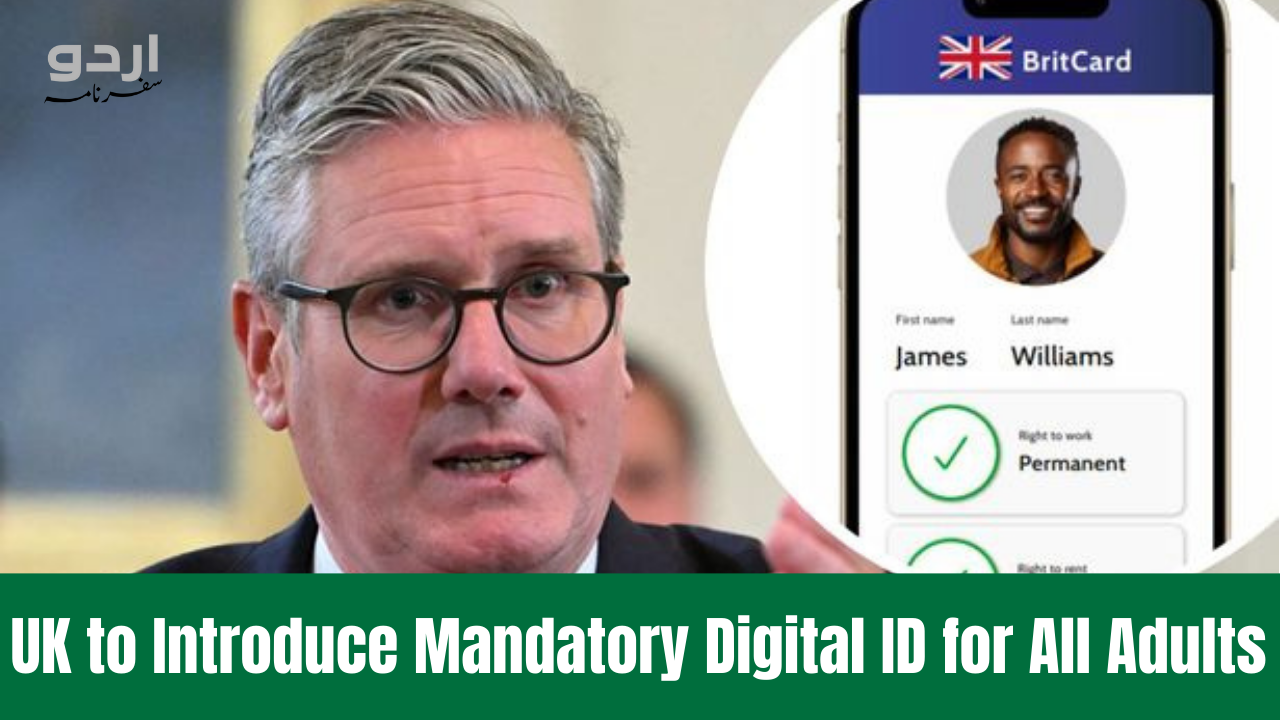Background and Political Context
The concept of national ID cards in the UK is not new. Former Prime Minister Tony Blair advocated for similar measures years ago to address illegal immigration. However, previous attempts to implement ID cards were blocked by the Conservative-Liberal Democrat coalition due to concerns over civil liberties and the practicality of such a system.
Starmer believes the current climate and technological advancements make the idea more viable today. “We all carry a lot more digital ID now than we did 20 years ago, and I think that psychologically, it plays a different part,” he noted, highlighting a shift in both public perception and government approach.
How the UK Digital ID Scheme Will Work
The planned digital ID system, sometimes referred to as the “Brit Card,” will allow adults to verify their right to live and work in the UK via a centralized database. Employers and landlords will be able to check legal status through the platform, including a smartphone app, streamlining verification processes that currently rely on physical documents.
Officials hope the system will reduce the use of fake documents and provide a more consistent method for identity checks, while also improving access to government services. Insights from Estonia’s digital identity system—which enables access to banking, medical records, and voting—have informed the planning of the UK rollout.
Expert Criticism and Security Concerns
Not all experts are convinced of the benefits. Chris Littlewood, a cybersecurity specialist, tweeted:
“Digital ID for every adult is not progress. It is the end of a free society dressed up as convenience. They are selling it as a fix for illegal migration. That is bollocks. Digital ID will not stop boats. It will not stop trafficking gangs. It will not fix a broken border. Criminals will work around it. Honest citizens will pay the price. It builds giant data banks that track where you go, what you buy, what you read and who you speak to. It links your identity to every checkpoint in daily life. One breach and your life is exposed. Look at Jaguar Land Rover and the airports in recent weeks. Now imagine that at national scale on an ID system tied to everything you need to live your daily life. Here is the risk that ministers will not admit. Ransomware seeded through a supplier or an insider: It lies quiet for months. It rolls through the backups. On trigger day the register and the recovery sets are both encrypted. Payments fail. Health and benefits stall. Borders slow. Citizens are frozen out until a ransom is paid or the state rebuilds from scratch. Centralise identity and you centralise failure. Do not fall for the pitch. Function creep is certain. It starts as login. It becomes access to money, travel, speech and public services. It turns rights into permissions controlled by the state and its contractors. It creates a single point of failure for criminals, insiders and hostile states to target. It will punish the elderly, the poor and anyone who is not always online. It will centralise risk and outsource blame. It will not stop fraud. It will not stop illegal migration. It will build the machinery for a social credit system by stealth. If ministers cared about the border, they would enforce current laws, resource patrols and processing, close loopholes and remove those with no right to stay. You do not need a national ID to do any of that. We scrapped ID cards in 2010 for a reason. Britain does not need a central register to prove age or status. Yes to privacy first proofs. No to a database state.”
View tweet
Political Reactions
The proposed scheme has sparked significant political debate. Conservative leader Kemi Badenoch described mandatory IDs as a “serious step that requires a proper national debate,” criticizing it as a “desperate gimmick.” Reform UK similarly dismissed the proposal, stating that illegal workers will not suddenly comply with the system, and that it infringes on freedoms of law-abiding citizens. BBC source
The Liberal Democrats also oppose a mandatory scheme, emphasizing that individuals should not become criminals simply because they choose not to have a digital ID. Former Labour leader Jeremy Corbyn echoed concerns over civil liberties, branding the scheme as an affront to fundamental rights.
Implementation and Future Outlook
Employers already perform checks on employees’ right to work in the UK, with digital verification available since 2022 for some British, Irish, and non-British citizens. The new ID system aims to centralize and standardize these checks. While it may offer convenience and a streamlined approach, its actual effectiveness in preventing illegal migration and related issues remains uncertain. BBC News source
Civil liberties groups, including the Open Rights Group, have expressed caution, highlighting previous issues with eVisa systems that suffered from data errors and failures. They warn against creating a “pre-crime state” where citizens must continuously prove their identity in daily life.
Conclusion
The introduction of a mandatory digital ID in the UK represents a significant policy shift aimed at modernizing government systems and addressing illegal migration. While the initiative may offer benefits in verification and service access, it also raises substantial concerns around privacy, security, and civil liberties. The public and stakeholders will closely watch how the government balances efficiency, security, and freedom in implementing this controversial scheme.
Related Post: Learn more about global immigration issues in our article on
UAE Visa Ban 2026: 9 Countries Affected – Truth Behind Rumors, Global Impacts & X Reaction.

